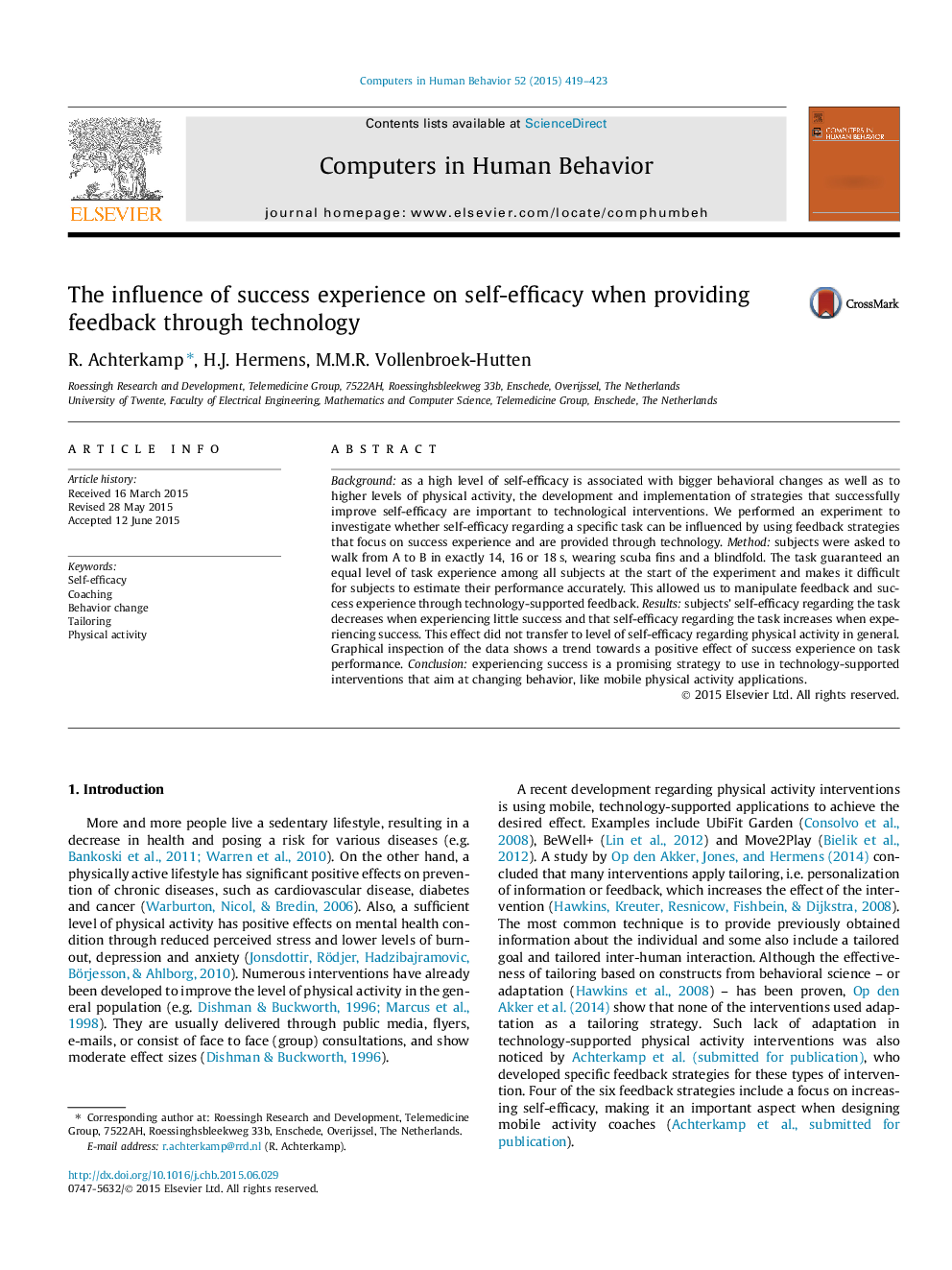| Article ID | Journal | Published Year | Pages | File Type |
|---|---|---|---|---|
| 6838052 | Computers in Human Behavior | 2015 | 5 Pages |
Abstract
Background: as a high level of self-efficacy is associated with bigger behavioral changes as well as to higher levels of physical activity, the development and implementation of strategies that successfully improve self-efficacy are important to technological interventions. We performed an experiment to investigate whether self-efficacy regarding a specific task can be influenced by using feedback strategies that focus on success experience and are provided through technology. Method: subjects were asked to walk from A to B in exactly 14, 16 or 18Â s, wearing scuba fins and a blindfold. The task guaranteed an equal level of task experience among all subjects at the start of the experiment and makes it difficult for subjects to estimate their performance accurately. This allowed us to manipulate feedback and success experience through technology-supported feedback. Results: subjects' self-efficacy regarding the task decreases when experiencing little success and that self-efficacy regarding the task increases when experiencing success. This effect did not transfer to level of self-efficacy regarding physical activity in general. Graphical inspection of the data shows a trend towards a positive effect of success experience on task performance. Conclusion: experiencing success is a promising strategy to use in technology-supported interventions that aim at changing behavior, like mobile physical activity applications.
Related Topics
Physical Sciences and Engineering
Computer Science
Computer Science Applications
Authors
R. Achterkamp, H.J. Hermens, M.M.R. Vollenbroek-Hutten,
